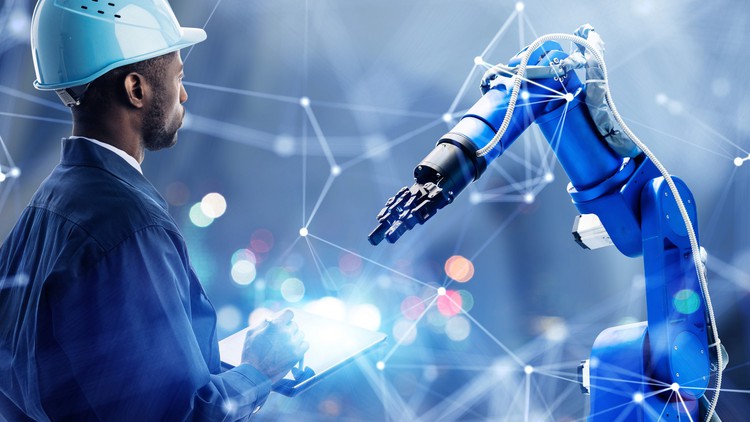It is no secret that Artificial Intelligence (AI) is making waves across different industries, and the area of engineering education is no exception. As technology continues to evolve and the need for creative solutions grows, It has become vital that engineering students also learn how to integrate the use of AI to stay competitive. This article explores the integration of AI in engineering education, shedding light on the countless benefits and diverse applications of AI tools that can benefit engineering students as they study and prepare to enter the workforce.

The Importance of AI for Engineering Students
Enhancing Learning Experiences
AI can create personalized learning experiences for engineering students. AI tools analyze students' strengths and weaknesses, providing tailored educational content. This helps students understand complex engineering concepts better and at their own pace.
Improving Problem-Solving Skills
Engineering students need strong problem-solving skills. AI tools can simulate real-world problems and provide instant feedback. These tools allow students to try different solutions, learn from their mistakes, and develop better problem-solving skills.
Bridging the Gap Between Theory and Practice
Additionally, AI helps students connect the theoretical knowledge of their book to real-life practical applications. Through the use of AI-powered simulations and virtual labs, students can gain hands-on experience in engineering tasks within a safe environment. This practical exposure effectively prepares them to handle real-world engineering challenges confidently.
Best AI Tools for Engineering Students
AI tools can personalize learning, enhance problem-solving, and provide hands-on experiences without needing physical resources. Here's a detailed look at some of the best AI tools for engineering students
StudyGPT
StudyGPT is an AI-driven tool designed specifically to aid students in their academic pursuits. This tool uses advanced natural language processing to offer a wide range of services, including custom study schedules based on individual needs, explanations of complex topics, and suggestions of relevant textbooks and resource materials.
ALEKS
ALEKS (Assessment and Learning in Knowledge Spaces) is an AI-based tutoring system that offers personalized learning experiences. It adapts to each student's needs by providing customized lessons and exercises. This helps fill knowledge gaps and strengthen understanding in various subjects, including engineering.
Coursera
Coursera provides online courses and specializations in AI and engineering. The platform uses AI to recommend courses based on student interests and performance, optimizing the learning path. Coursera’s interactive projects and peer-reviewed assignments also enhance the learning experience.
Labster
Labster offers virtual labs where students can perform experiments in a simulated environment. This tool covers a range of engineering disciplines, providing practical experience without needing a physical lab. Labster’s virtual labs are particularly beneficial for online courses and institutions with limited resources.
Tinkercad
Tinkercad is an online 3D design and modeling tool ideal for engineering students. It helps students learn about electronics, 3D design, and coding through interactive simulations. Tinkercad’s AI features guide students through design principles, making complex concepts easier to grasp.
Semantic Scholar
Semantic Scholar uses AI to help students quickly find relevant research papers. It analyzes and summarizes academic papers, making it easier to identify key insights and trends. This tool is invaluable for engineering students conducting literature reviews and research.
Zotero
Zotero is a research assistant that helps students collect, organize, cite, and share research sources. Its AI features assist in managing bibliographies and identifying relevant materials, streamlining the research process.
Khan Academy
Khan Academy offers educational resources across various subjects, including engineering. Its AI-driven platform personalizes learning by providing tailored recommendations and immediate feedback based on student performance. This helps students master engineering concepts at their own pace.
EdX
EdX provides online courses from top universities and institutions. Its AI tools track student progress, recommend courses, and enhance learning through interactive and adaptive content. EdX’s AI features help students stay engaged and succeed in their engineering studies.
Civitas Learning
Civitas Learning uses predictive analytics to improve student success rates. It analyzes data from various sources to provide insights and recommendations, helping identify at-risk students and tailor interventions to support them.
Brightspace Insights
Brightspace Insights by D2L is a learning analytics platform that provides real-time data on student performance. Its AI capabilities help educators and students make informed decisions to improve learning outcomes.
Piazza
Piazza is a Q&A platform that facilitates collaborative learning. It connects students and instructors, allowing them to share knowledge and get answers quickly. Piazza’s AI features help categorize and prioritize queries, making learning more efficient.
Slack
Slack is a team communication tool that also serves as a collaborative learning platform. Its AI-driven features help organize discussions, share resources, and integrate with other educational tools, fostering a collaborative environment.
Trello
Trello is a project management tool that uses AI to streamline workflows. It helps students manage their projects by organizing tasks, setting deadlines, and tracking progress. Trello’s AI features automate repetitive tasks, making project management more efficient.
Asana
Asana is another project management tool that assists in planning, tracking, and managing engineering projects. Its AI features optimize task assignments, predict project timelines, and identify potential bottlenecks.
AI Ethics Lab
AI Ethics Lab provides resources and tools to teach ethical AI practices. It offers case studies, guidelines, and workshops to help engineering students understand and navigate ethical dilemmas in AI development and application.

Applications of AI in Engineering Education
Intelligent Tutoring Systems
Intelligent Tutoring Systems use AI to offer personalized tutoring. These systems analyze students' learning patterns and adjust the difficulty of exercises. For instance, a student struggling with calculus can get extra practice problems and detailed solutions, helping them improve.
Virtual Laboratories
Virtual laboratories use AI to create interactive learning environments. Students can conduct experiments, analyze data, and draw conclusions without needing a physical lab. The virtual laboratory tool is helpful for students who take online courses and schools with limited resources.
AI-Powered Research Tools
AI-powered research tools help students with literature reviews, data analysis, and testing hypotheses. Natural Language Processing AI algorithms can quickly scan academic papers and summarize key points. Machine learning AI algorithms can analyze large datasets to find patterns that are not obvious.
Case Studies: AI in Engineering Education
Carnegie Mellon University
Carnegie Mellon University (CMU) uses AI in its engineering programs. The AI-based tutoring system "ChemCollective" helps chemical engineering students understand complex reactions. It provides simulations, exercises, and personalized feedback, improving student performance.
Massachusetts Institute of Technology
The Massachusetts Institute of Technology (MIT) has a platform called "Digital Learning Laboratory." This platform offers virtual labs and simulations for engineering students. Using AI, MIT ensures students gain practical experience and a deep understanding of engineering concepts.
Stanford University
Stanford University uses AI to enhance research in engineering programs. The "AI for Research" initiative allows students access to advanced AI tools. These tools help analyze complex datasets, conduct simulations, and generate insights, speeding up the research process.
Future Prospects of AI in Engineering Education
AI-Driven Curriculum Development:
AI can help update engineering curriculums by identifying new industry trends and skill requirements. AI can suggest changes to course content, ensuring students learn relevant skills.
Enhanced Collaboration and Networking:
AI can improve collaboration among engineering students and professionals. Online platforms powered by AI connect students with industry experts for knowledge sharing and mentorship. AI-driven recommendation systems suggest relevant research papers, conferences, and networking events.
AI for Lifelong Learning:
Engineering is an evolving career, so professionals need continuous education. AI supports lifelong learning by offering personalized learning paths and recommending courses. This helps engineering graduates stay updated with the latest advancements.
Challenges and Considerations
Ethical Implications:
Using AI in education raises ethical issues like data privacy and algorithmic bias. Schools must create ethical guidelines and ensure transparency in AI applications to maintain trust.
Accessibility and Inclusivity:
AI tools should be accessible to all students, including those with disabilities. Educational institutions must ensure AI tools cater to different learning styles and provide equal opportunities for everyone.
Cost and Infrastructure:
Implementing AI in education requires investment in technology and infrastructure. Schools need resources for AI tools, data storage, and high-speed internet. Faculty also need training to use AI effectively in teaching.
Conclusion
AI is transforming engineering education by enhancing learning experiences, improving problem-solving skills, and bridging the gap between theory and practice. Tools like intelligent tutoring systems, virtual labs, and AI-powered research tools help students gain personalized and practical knowledge.
Looking ahead, AI-driven curriculum development, enhanced collaboration, and lifelong learning opportunities will further improve engineering education. However, it's crucial to address ethical issues and ensure accessibility. By embracing AI, engineering education can meet industry needs and prepare students to be innovative problem solvers and leaders.
